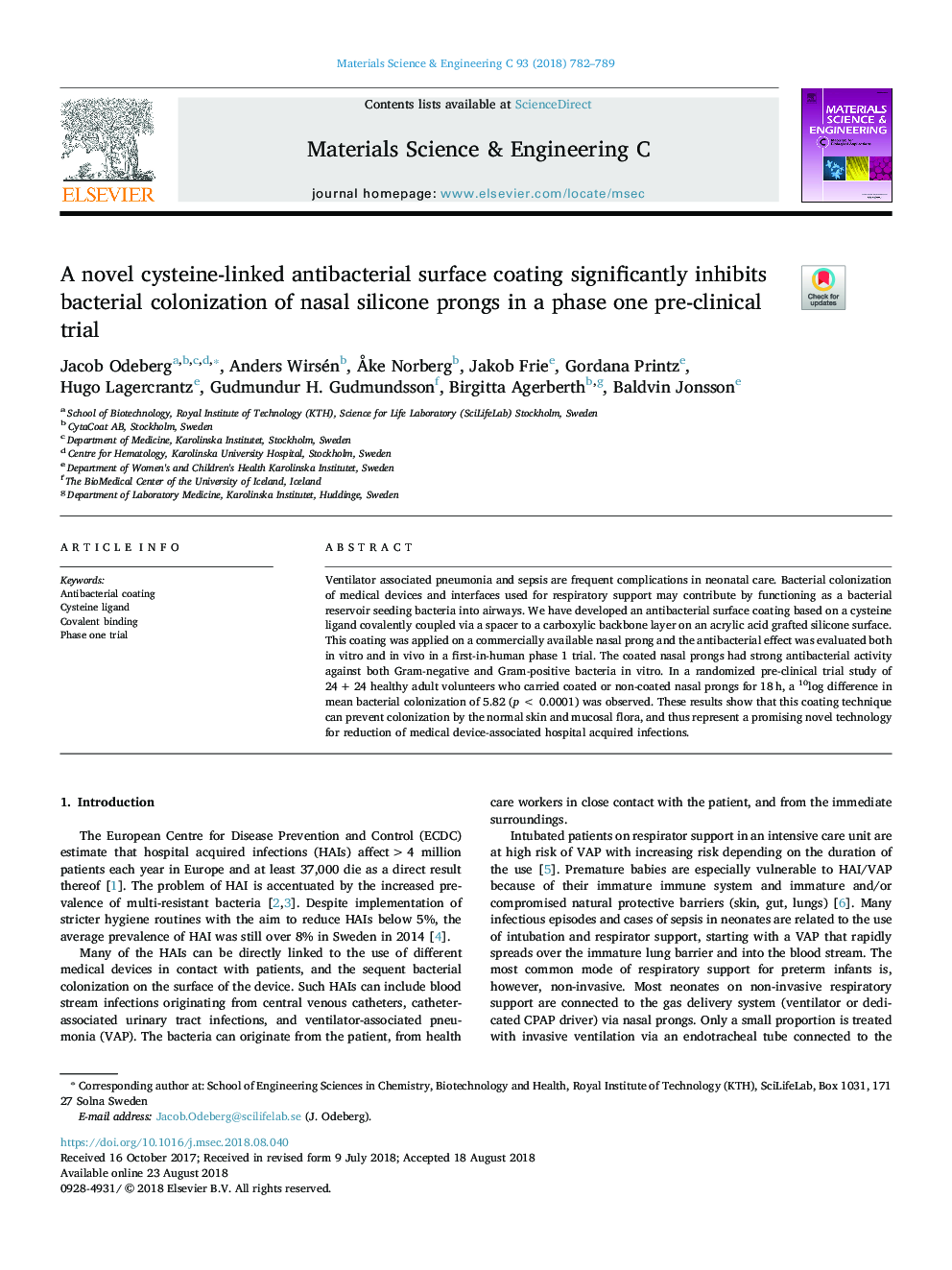| Article ID | Journal | Published Year | Pages | File Type |
|---|---|---|---|---|
| 11006715 | Materials Science and Engineering: C | 2018 | 8 Pages |
Abstract
Ventilator associated pneumonia and sepsis are frequent complications in neonatal care. Bacterial colonization of medical devices and interfaces used for respiratory support may contribute by functioning as a bacterial reservoir seeding bacteria into airways. We have developed an antibacterial surface coating based on a cysteine ligand covalently coupled via a spacer to a carboxylic backbone layer on an acrylic acid grafted silicone surface. This coating was applied on a commercially available nasal prong and the antibacterial effect was evaluated both in vitro and in vivo in a first-in-human phase 1 trial. The coated nasal prongs had strong antibacterial activity against both Gram-negative and Gram-positive bacteria in vitro. In a randomized pre-clinical trial study of 24â¯+â¯24 healthy adult volunteers who carried coated or non-coated nasal prongs for 18â¯h, a 10log difference in mean bacterial colonization of 5.82 (pâ¯<â¯0.0001) was observed. These results show that this coating technique can prevent colonization by the normal skin and mucosal flora, and thus represent a promising novel technology for reduction of medical device-associated hospital acquired infections.
Related Topics
Physical Sciences and Engineering
Materials Science
Biomaterials
Authors
Jacob Odeberg, Anders Wirsén, Ã
ke Norberg, Jakob Frie, Gordana Printz, Hugo Lagercrantz, Gudmundur H. Gudmundsson, Birgitta Agerberth, Baldvin Jonsson,
